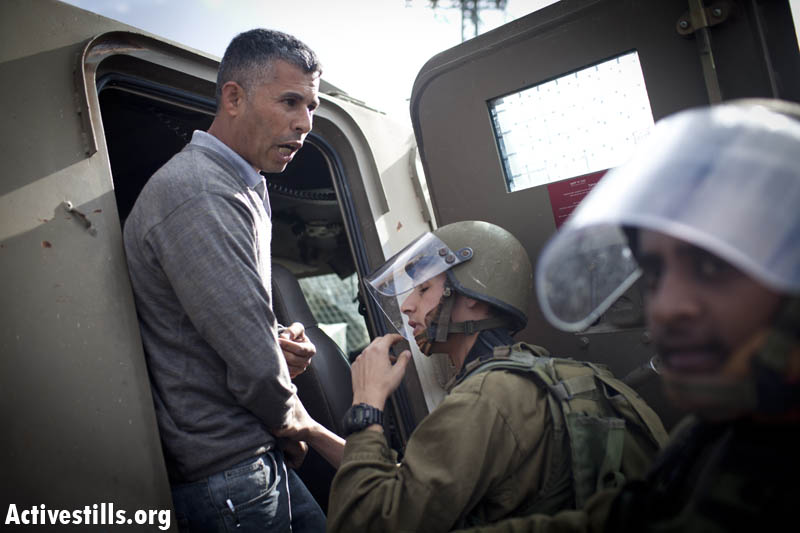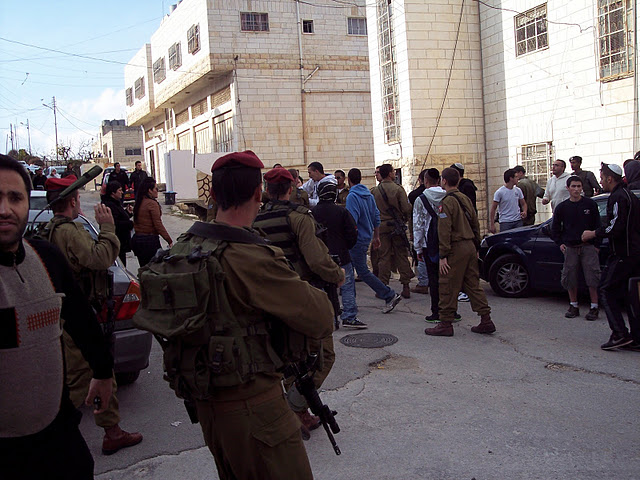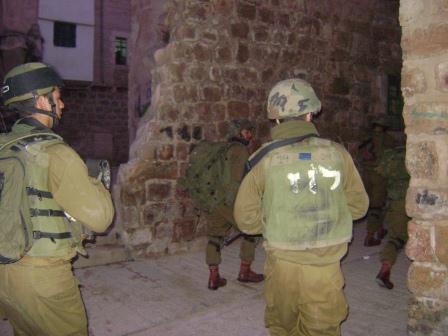Tag: Video
-
2 Palestinians arrested in Nabi Saleh still in jail for resisting occupation
17 December 2011 | Chroniques de Palestine In a blatant demonstration of the discriminatory policies used by the Israeli authorities when it comes to deal with protesters; out of the 21 persons who were arrested during the demonstration in Nabi Saleh on 16.12.2011, all the Israeli and internationals were released while two Palestinians are still…
-
Settlers and military jump pedestrians in Tel Rumeida
by Fida Far 16 December 2011 | International Solidarity Movement, West Bank When my friend and I decided to walk downtown, we didn’t expect that this walk could be dangerous. There was a funeral going on for a settler woman who had been killed by her ex-husband, who in turn committed suicide. First we passed…
-
Israeli soldiers raid Hebron homes “to stay in shape”
by Carol Vans 15 December 2011 | International Solidarity Movement, West Bank Today on December 15, Israeli soldiers raided private property and at least one school in what appeared to be a military excercise in Hebron. Around 7:30 in the morning soldiers entered the playground of Ibrahimi elementary school and claimed that children had been throwing pieces of…



